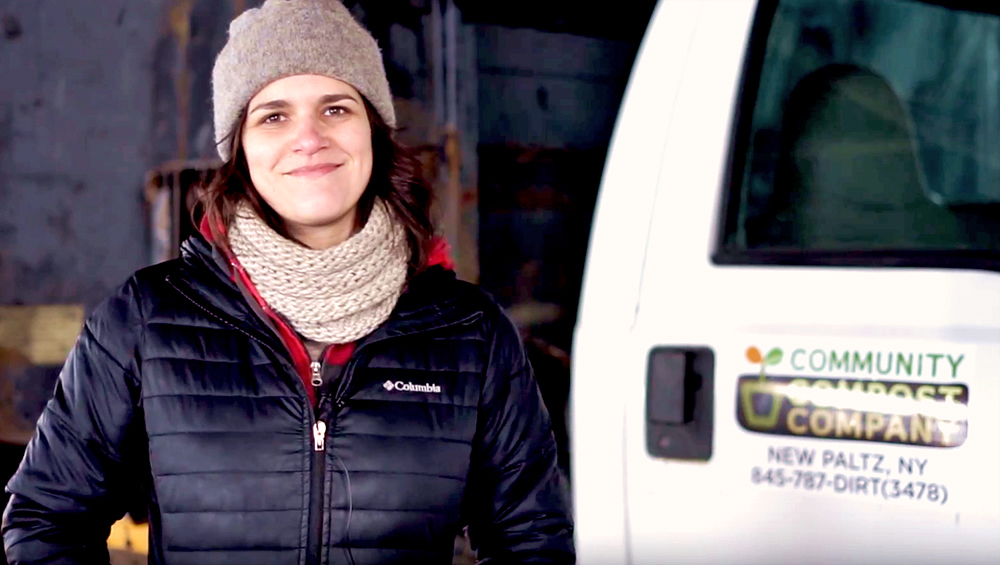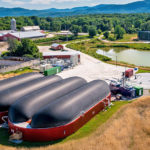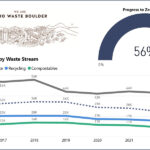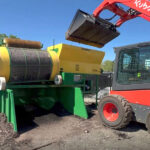Molly Lindsay
In 2014, I attended my first Cultivating Community Composting forum in Baltimore, organized by BioCycle and the Institute for Local Self-Reliance (ILSR). It was two weeks after starting my position at Community Compost Company, based in New Paltz, New York. Having limited knowledge of composting, save for backyard environments, I remember trying to memorize the process of aerated static pile composting (the method we use at our operation) with my coworker on the way there.
I found my way to Community Compost Company after working for farms and environmental organizations after college, and through my interest in an alternative career path, one that involved working for a small business that was making a greater impact and supporting our planet’s declining health. This is a similar story to many I’ve encountered who have started or are working for community composting businesses or organizations — not necessarily coming from a science, environmental, or business background, but having more of a calling to participate in meaningful work and advance the circular economy.
Connecting with others in this realm through the forum in 2014, and subsequent conferences through ILSR and the US Composting Council, has been validating and a source for inspiration. ILSR has created an amazing resource and roadmap for those participating in or looking to learn more about community composting. The Institute facilitates conversations through its annual forums, studies, webinars, podcasts, and an active listserv — all helping to combat challenges and demystify questions such as finding insurance, recommendations for equipment, and best management practices.
Food scrap diversion programs are being initiated in an increasing number of states, in part because the general public wants to take action on our climate crisis, and keeping food waste out of the landfill is an excellent first step. As a result, demand for food scrap collection services and composting facilities continues to grow. Community composters are responding to these needs by creating programs with a focus on education and engagement that empowers communities to become directly involved in mitigating methane emissions, building healthy soils and growing local food. This form of organics recycling isn’t necessarily defined by a particular scale, but by building connections to waste on an individual level that then percolates throughout the community.
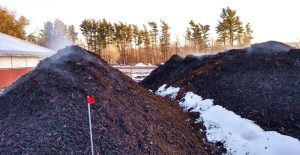
Aerated static piles at Community Compost’s facility in Kerhonkson, NY. Image courtesy Community Compost Company
Processing Near Point Of Generation
Community composting is thriving in both urban and rural areas nationally and globally. At the 2019 Cultivating Community Composting Forum in New York City there were over 140 attendees from Costa Rica to Alaska to Texas. Food scrap drop-offs at central locations like farmers’ markets and micro-haulers are improving collection efficiency. Community gardens, urban farms and distributed, small-scale composting sites are processing material as close as possible to where it is generated. Community-scale composting plays an important role in expanding the organics recycling infrastructure and motivating governments, businesses, and citizens to participate.
Starting a food scrap collection service or composting program can be as simple as grabbing some 5-gallon buckets and a pick-up truck, or building a pile at your community garden. But there are important pieces to reflect on and research before beginning your endeavor.
In this series, I will highlight the top considerations for starting a community composting business and will share insights from those who are pioneering the movement through their operations. These considerations include: Business Focus, Business Structure, Collection, Processing, Location and Scaling.
The first in this monthly series, “Business Focus,” will be published on April 15.
Molly Lindsay is Director of Operations at the Community Compost Company, a food scrap collection service and compost production company headquartered in New Paltz, New York. She also serves as Editor of Livelihood magazine, a resource for good news on keeping money local, sharing abundance, and strengthening communities in the Hudson Valley.


